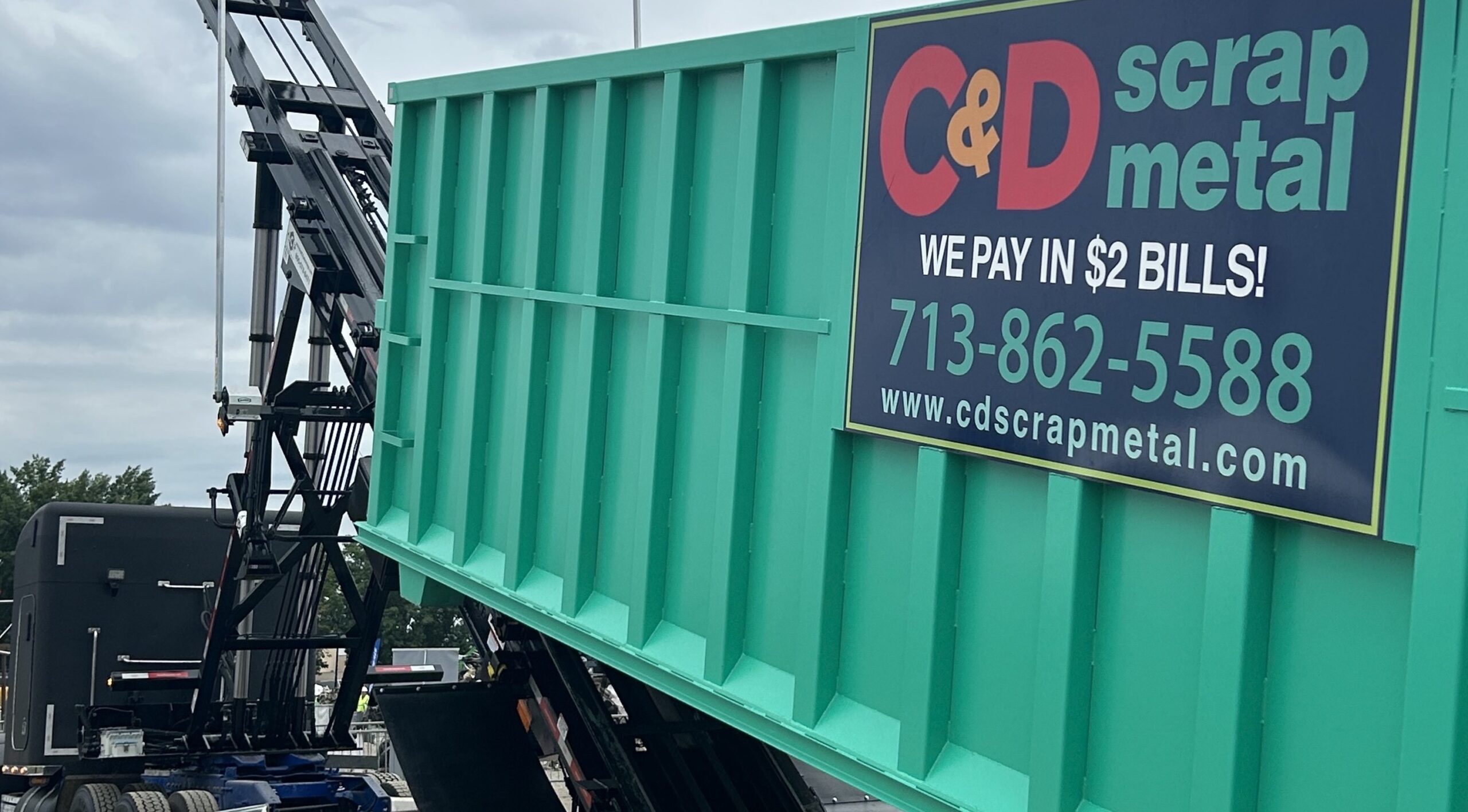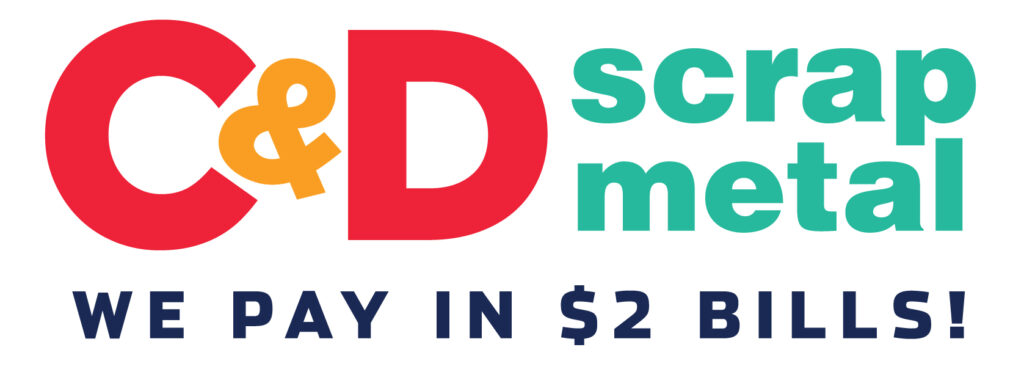Turning Scrap into Profit: 5 Benefits of Scrap Metal Recycling for Your Business

In the pursuit for sustainable practices and responsible resource management, businesses are increasingly turning their attention towards scrap metal recycling. This eco-friendly and economically savvy approach to managing scrap from manufacturing, construction, or clean-up projects offers a range of benefits that extend well beyond the immediate bottom line. You may think of metal recycling as just the recycling of aluminum cans and other smaller items but the scrap recycling industry encompasses a range of recyclable metals, big and small.
For example:
- Steel and iron (An example might be HMS from construction demolition projects.)
- Copper (An example would be old electrical wiring or cables from electrical projects.)
- Aluminum (For instance, aluminum extrusions from window and glass projects.)
- Brass (An example would be plumbing brass from an office remodel.)
- Stainless steel (For instance, stainless shavings from machine shops.)
From reducing environmental impact to boosting your brand’s reputation, here are five compelling reasons why scrap metal recycling should be a part of your business strategy.
Revenue Generation with Scrap Metal Recycling
Your business’s discarded scrap metal is an untapped opportunity. Partnering with trusted scrap metal recycling facilities like C&D Scrap Metal can turn this excess material into a valuable asset and boost your income.
Often, businesses underestimate the worth of their scrap metal. Materials that might have gone to the landfill can bring in valuable returns at scrap yards. Recycling centers often offer competitive scrap metal prices for various metals like aluminum, steel, copper, and brass. This means your scrap materials can become a source of income.
Creating a revenue stream from scrap metal also diversifies your income sources. Instead of relying solely on your core products or services, you can tap into the potential of discarded metals.
Recycling scrap metal also simplifies the handling of surplus materials from projects. Instead of paying for disposal, you turn discarded materials into a valuable commodity. Don’t let these important metals go to a landfill.
Environmental Stewardship of Scrap Metal
Today, environmental concerns are at the forefront of public consciousness. The decisions businesses make to recycle scrap metal at their local scrap yard can reduce harm to the environment and promote sustainability.
Every piece of ferrous and non ferrous metals that are recycled is a step towards reducing greenhouse gas emissions. For example, recycling aluminum saves up to 95% of the energy required to create the same amount of aluminum from raw materials. This energy savings translates directly into reduced emissions, as the metal production process is often a significant source of carbon dioxide and other pollutants.
Energy conservation is another byproduct of the scrap metal recycling process. For instance, mining and refining processes for copper can be extremely energy-intensive. The same goes for steel, a ferrous metal, that can be endlessly recycled.
Recycling these metals dramatically lowers the energy footprint associated with their production. Mining for new ores not only uses a lot of energy but can also seriously harm the environment. Forests may be cleared, habitats disrupted, and water sources polluted. When businesses decide to recycle, they can help protect important ecosystems.
Recycling for Enhanced Brand Image
Consumers are increasingly making choices that reflect their environmental concerns and values. A business’s commitment to scrap metal recycling can be a powerful tool in enhancing their brand image, and attract consumers who want to feel good about the ways they spend their money.
Customers who prioritize sustainability in their purchasing decisions are more likely to become loyal patrons when they find a company that shares their values. This loyalty can translate into repeat business, positive word-of-mouth, and increased customer retention.
Recycling initiatives can also be a part of your marketing strategy. In a crowded marketplace, where businesses often offer similar products or services, a company’s commitment to environmental sustainability sets them apart and can be a key differentiator in a consumers’ decision-making processes.
Metal Recycling for Legal and Regulatory Compliance
Governments and regulatory bodies are increasingly enacting stricter environmental regulations. These rules aim to control and reduce industrial waste and pollution, addressing critical global challenges such as climate change and resource conservation. The urgency to address these issues is reflected in the escalating stringency of these regulations. Therefore, for businesses, compliance is not merely a choice; it’s a necessity in the face of evolving environmental standards.
By integrating scrap metal recycling into your business operations, you can ensure that your business is in alignment with the most up-to-date regulations. This forward-thinking approach not only reduces the compliance risk but also positions your business as a responsible industry leader committed to working towards a cleaner future.
Scrap metal recycling isn’t just about salvaging discarded materials; it’s about embracing a mindset that combines economic growth with environmental stewardship. By reducing your carbon footprint, lowering production costs, generating revenue, and enhancing your brand image, your business stands to gain immensely from a partnership with a trusted scrap yard.
Recycling Scrap Metal for Resource Management
Using scrap metal to manufacture steel offers greater efficiency and cost-effectiveness compared to conventional steel production techniques. Thus, the cost savings may be passed on to customers in the form of lower material costs.
Moreover, when businesses prioritize scrap metal recycling, they actively participate in a circular economy. In a circular economy model, resources are continually cycled and reused, minimizing waste and reducing the need for extracting new raw materials. This approach not only helps with sustainability goals, but it also fosters collaboration between businesses as they exchange recyclable materials.
See the Scrap Metal Recycling Process in Action
Contact C&D Scrap Metal, your local scrap metal yard with three convenient locations in Northwest Houston, Southwest Houston and Sugar Land, to learn more about selling scrap metal. We accept ferrous and non-ferrous metals such as steel, iron, copper, aluminum, brass, stainless steel and more.
C&D Scrap Metal Recyclers is proud to partner with our commercial, industrial, and manufacturing customers by offering a customized recycling program based on a company’s needs. At C&D, we begin by conducting a complimentary on-site evaluation to assess your existing industrial scrap metal recycling processes. Based on this assessment, we can work together to create a personalized program that includes scheduled pickups for bulk metal recycling.
The aim is to offer your business convenient, secure, and financially rewarding recycling solutions. We are always ready to discuss the advantages of establishing a recycling partnership and look forward to exploring the benefits it can bring to your company.
